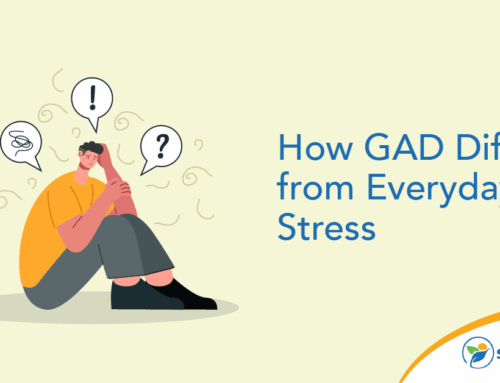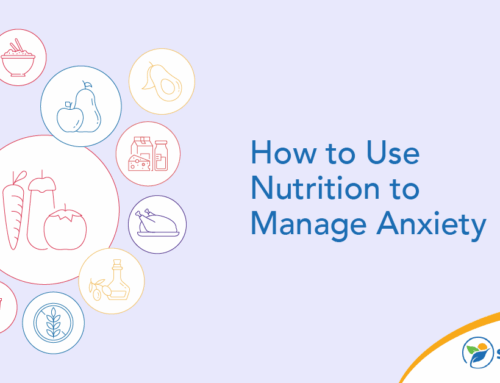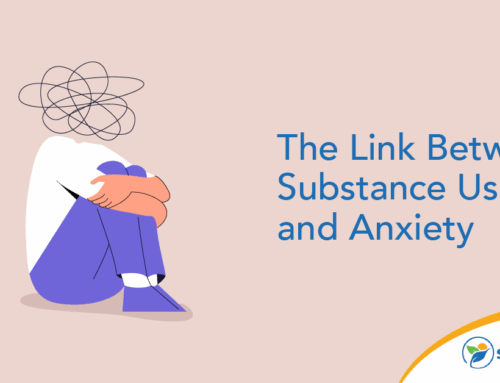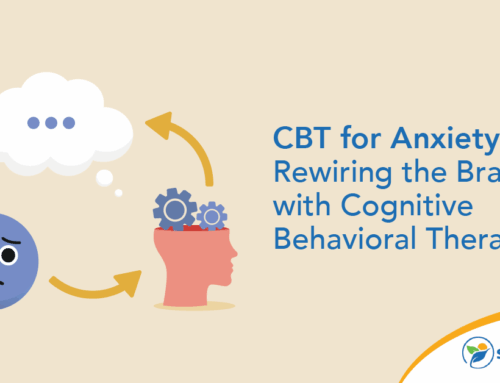Suicide is one of the leading causes of death in the United States, responsible for the loss of nearly 50,000 lives a year. More Americans die from suicide than from fires, drowning and homicide combined. Every one of these losses affects loved ones and survivors for the rest of their lives, and the numbers have been increasing for many years. Since 2020, the semicolon has emerged as a symbol for depression and other issues related to suicide.
The State of Mental Health
While there’s not usually a single cause for self-harm, tragedies like this are often associated with depression, anxiety and other mental health issues. About 1 in 5 American adults lives with a mental health disorder, with roughly 4% experiencing a severe condition such as schizophrenia, bipolar or major depression.
Treatment options exist for these conditions, but problems of access and community support prevent many people from getting the help they need. People with mental health issues are also resistant to getting help, and it’s common for those thinking about harming themselves to conceal their thoughts from loved ones until it’s too late. These factors combine to make it harder than it should be for people with mental health conditions to get care.
Breaking the Stigma of Mental Illness
Mental health has carried a stigma for thousands of years. In societies all over the world, people with serious mental health needs have been ignored, marginalized and sometimes severely mistreated. Even today, when the scientific understanding of mental health is perhaps higher than it’s ever been, people with psychological care needs can feel justifiable concern about revealing their struggles to society. A first responder with depression, for instance, could face removal from their job and possibly the end of their career in public safety if legitimate concerns about mental health ever get out.
This atmosphere of misunderstanding and distrust sharpens the feelings of shame and fear mental health disorders have always carried with them. Unlike purely physical illnesses, which are well understood to be the result of viruses, genetics and other environmental factors, people seeking help for mental health are often made to feel a sense of wrongdoing or shame on top of the symptoms they’re already struggling to manage.
Project Semicolon
Public awareness is a major factor in fighting for better mental health. To that end, Wisconsin native Amy Bleuel founded Project Semicolon, often stylized as “Project;” in 2013, 10 years after losing her father to suicide. Project; is a 503(c) nonprofit advocacy group headquartered in Portland, OR, that works to improve the public understanding of mental health issues and the challenges people face when they need care. The project chose a semicolon as its logo because “A semicolon symbolized that a sentence wasn’t over yet, and neither was their life.”
Since its founding, Project; has built a public awareness campaign on several social media platforms and gained hundreds of thousands of followers. The group has worked with state and local governments to reduce barriers to mental health care, as well as with high-profile celebrities and influencers to improve the social climate surrounding mental health awareness. One of the more successful campaigns Project; has launched is an effort to get the semicolon itself recognized as a suicide symbol and an expression of solidarity with people in need of mental health care.
Public Visibility of the Semicolon
After years of advocacy, the relationship between the semicolon and mental health is as strong as it’s ever been. Project; has encouraged people from all walks of life, and particularly those in the public view, to get a visible semicolon tattoo as a conversation starter and statement of support. Recording artist Selena Gomez has done this on her left wrist, while “13 Reasons Why” stars Alisha Boe and Tommy Dorfman have gotten matching semicolon tattoos of their own.
Project; encourages activism like this even from people who aren’t famous or don’t feel they can commit to getting a tattoo of their own. Buttons, ribbons and other removable symbols are widely available and can be worn, switched up and changed to match every occasion, from casual hangouts to formal job interviews and wedding parties. People can ink a semicolon somewhere visible on their clothes, put the symbol up on their door or other accessible part of their home or apply a semicolon magnetic decal to their car. In all cases, the display of the semicolon is meant to send the message that people struggling with depression, psychosis and thoughts of self-harm aren’t alone and that society is more accepting of them than they may have privately thought.
The Ongoing Life of Project Semicolon and a Powerful Symbol of Depression
Project; founder Amy Bleuel took her own life in 2017, aged 30, after a lifetime of struggling with depression and various kinds of abuse. Despite her loss, which left a grieving husband, mother and many other loving relatives, the campaign she founded has endured. Project; continues its work on behalf of better mental health, with some kind of official status in every U.S. state and a global reach on social media.
The organization’s work has expanded beyond its original public awareness mission and into several issues that surround suicide, such as mental health, health care in the United States, drug and alcohol addiction and grief from personal loss, especially from the suicide of a loved one. While tens of millions of Americans live with at least mild mental health issues and millions more struggle with addiction, Project; is likely to stay busy for the foreseeable future.
Applying the Lessons of Project; for Your Own Life
If you or a loved one is living with a mental or emotional health issue, reaching out for help can be the hardest step of all to take. Sunlight Recovery offers top-of-the-line addiction counseling and recovery services in the heart of Boca Raton, FL. When you reach out to us for help, our team of caring, compassionate counselors can help you start down the road to a life of better mental health. There doesn’t have to be a period at the end of your sentence; contact us today.







